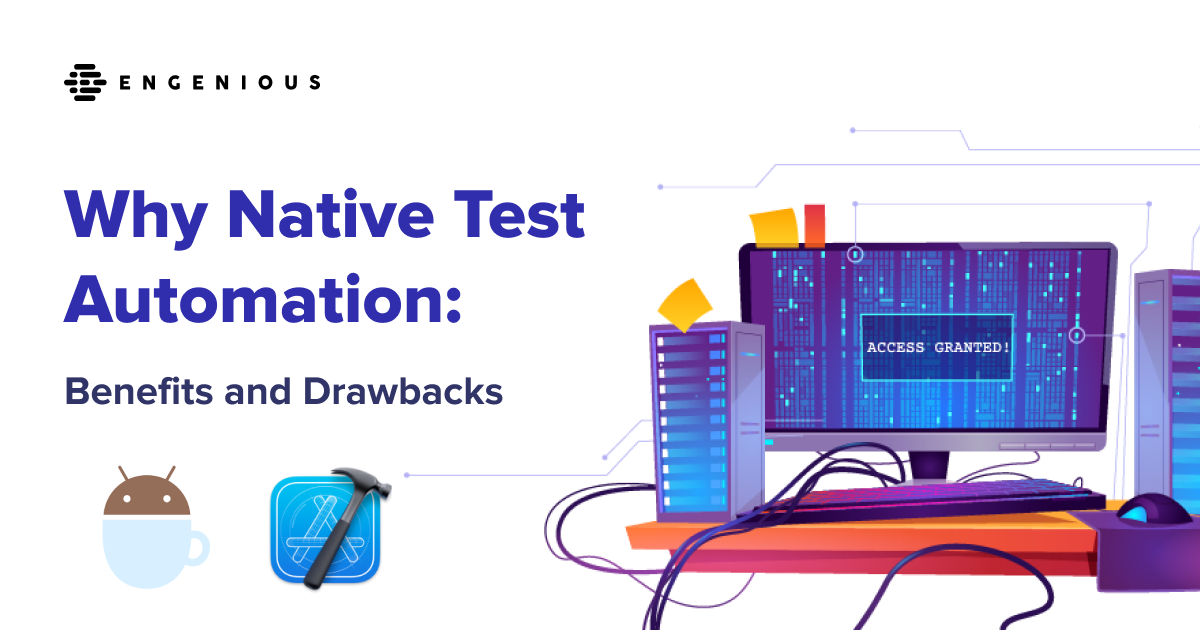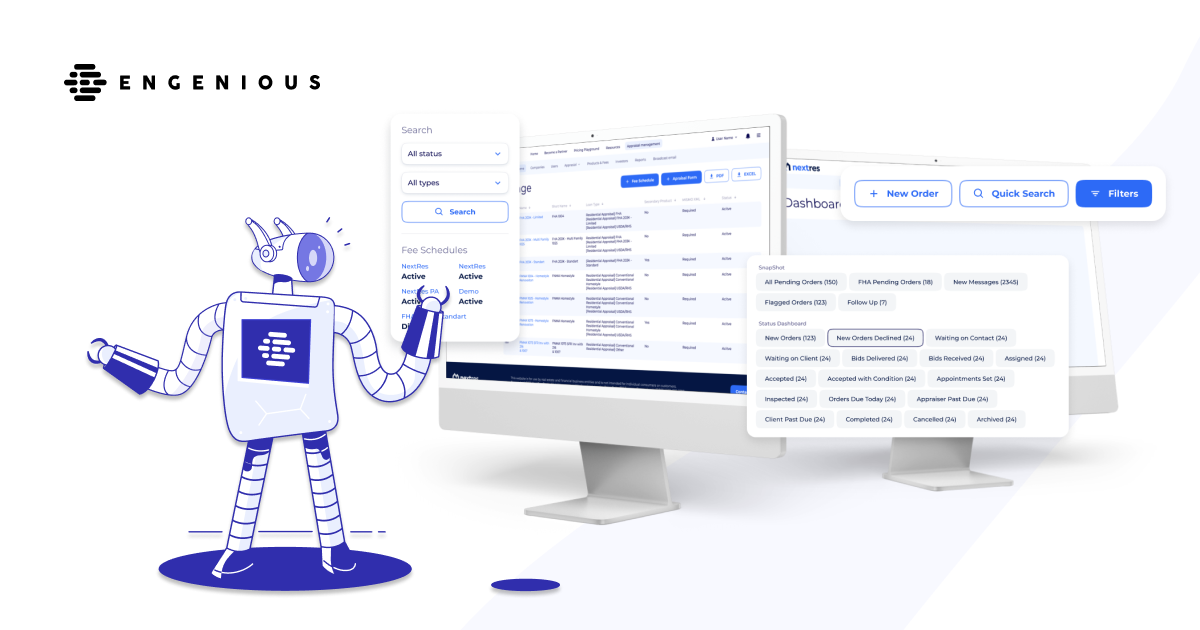Becoming an Android Developer at 29. Personal Story
Plan to start a new career in it? Get inspired by the personal success story of Serhii, who shifted to the position of Android developer. Some tips and tricks included!
Why did you choose Android development?
I first made a career in logistics. But after 6 years I realized that it involves a lot of communication: calls, emails, meetings. You really depend on other people – and I enjoy independency. So at 29 years old, I decided to move to development. The choice of the new field and the domain was inspired by my brother, who was a senior Android developer at that time.
Who is this job suitable for? What kind of mindset do you need to become an Android developer?
Well, you need to be inclined in technical work. Android developers usually receive the design from other specialists, and rarely create – or even add to, the design yourself. You’re mostly responsible for the implementation of the application, its structure, and its logic. To create non-standard views, you need knowledge of mathematics, coordinate systems, and matrices. I test my part of the code. Being creative and able to think abstractly is important, but technical knowledge is far superior in my career.
When shifting to Android development, how did you organize your studying? Did you have a mentor?
For sure it’s possible to work, and study simultaniously. But it would’ve delayed my career change if I couldn’t devote more hours to studying. I quit my job instead, and devoted full-time hours, Monday to Friday, 8 a.m. to 5 p.m. to studying. The career change was planned in advance, so I had saved enough to help me through unemployment.
I started with free courses from Google: introduction to Java, basics of programming, basics of Android, etc. The courses are full of detailed and digestible videos, tests, tasks, and case studies. My mentor was my brother; he had been in Android development for quite some time already. During weekends I was learning advanced programming and helping him work on problems. I got to see what a real developer does. Having the opportunity to work on applications before I was in the field was extraordinarily helpful. It not only furthered my learning, but it made me excited and kept me motivated
So free courses and time with your brother were enough to start? Have you attended paid courses?
Of course, I could’ve enrolled in a college or university program. But that’s expensive, and I wasn’t working at the time. Instead, I tried a few paid courses through websites, but honestly, the free ones were just as good. Google’s free courses give a great amount of base knowledge; they were my favorite.
Being able to work with my brother was one of the most important learning opportunities. Anything I couldn’t find on Google courses could be taught by him. If I needed to understand how something was built, he showed me. He was a tutor and a mentor. Not to mention, it was just nice spending time with him.
If you can’t find a mentor, there are still lots of things you can do. Writing code of your own is immensely helpful because you understand the thought process and problem-solving that goes into applications. I wrote my own after a mere two months. If you need real-world experience, I’ve heard of internships offered by companies as well.
How long did it take to find my first job as an Android developer?
After taking courses for two months, I wrote a program myself to deepen my understanding and gain experience. It started my portfolio and motivated me to grow it. It was quite the achievement for me, and I grew enough confidence to try to get paid. I showed my program to customers for freelancing. A month later, I landed my first freelance job.
Where did you look for the job?
On Upwork. I worked about 30 hours per week for three months. The experience really helped build my confidence and led me to apply for my first Android developer full-time job. I encourage everyone to start with freelancing when making a career change. It adds to your portfolio, gives you experience, and the money doesn’t hurt either.
What tools or programming languages would you recommend to get started? Is it enough to follow Google’s free course program?
For me, Google’s free courses were definitely enough, but I also had my brother as a mentor. I’m not trying to downplay how fantastic they are, though. My brother was a big help, but the courses are really the foundation for my knowledge.
Tools and programming languages? Definitely Android Studio. It’s a free download, made by Google, and is required to write Android applications. Everything in Android Studio is presented conveniently and efficiently; it’s just a breeze to use.
For languages, I switched to Kotlin a long time ago, which is a more efficient Java alternative that everyone now uses. But since Android is written in Java, you need to learn that first – or at least understand it. Most people don’t write in Java anymore, but the Android code was initially written in Java, so when you open it that’s what you’ll see. Same with Kotlin, when you open a Kotlin code, it’s Java. Kotlin works as a wrapper for Java, and is far more efficient and simpler. But if you’re really looking to set yourself apart, knowing how to write Java won’t hurt.
Tell me about your first job interview
During the first interview, I wasn’t asked a lot of questions. It was not very difficult. It seems the Android developer who was supposed to ask theoretical questions, was absent.
My first interview had a lot of questions regarding programming logic, included with a technical task. It was a take-home task with a two-day deadline – in Kotlin. Well, I actually didn’t know Kotlin at the time. I had been programming with Java. But I learned it over the course of the two days and finished it in time. As I said, Kotlin is efficient and simple.
Normally, you get asked a lot of theoretical questions during interviews. To prepare for this, you can easily Google example questions.
More about how to pass an interview you can find out during our nearest webinar. Save your seat here.
What resources would you advise to prepare for this career?
I’d start with Android docs first. There are tons of examples, and everything is very well described. Next is Stack Overflow. This is basically a question and answer website, a Reddit for coding problems and solutions. It’s enormously useful, and one of my go-to websites. Lastly, I honestly just read articles about something new, something I haven’t learned yet. I like Pro Android Dev and Medium because the articles are super practical, and vary in length from very short to moderately long. You can also submit your own original article if you want. That wouldn’t be a bad way to showcase your understanding, either.
What advice would you give to young professionals?
The main thing is to lay a good foundation. Don’t chase after the latest and greatest when you don’t even know the basics. So, start with the basics, and learn gradually.
I can’t stress enough how important it is to never stop learning. Technology is a great field – one of the most rewarding and ubiquitous. But it changes – a lot. You need to be on top of it, knowing what has changed, how to deal with new problems, etc. Once you feel very comfortable with your ability, dedicate time each day – or each week, to learning something new. Technology doesn’t stop and neither should you.
Also, very important to find a supportive expert, who will help you to develop your skills during work. We at Agilistry tend to look for new talents and help them grow. I share my personal experience with young Artyom, who started working with us as early as he was 18yo! Now, 2 years later, he is an expert himself!
Want to become a developer or a test automation engineer with the support of experienced leadership? Join Agilistry!


